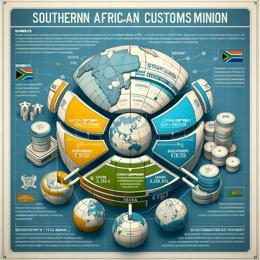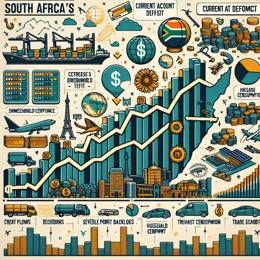Image created by AI
India and South Africa Stymie WTO Investment Agreement, Citing Consensus Concerns
At a pivotal assembly of the World Trade Organisation (WTO) held in Abu Dhabi, India and South Africa lodged a formal protest that has effectively put a halt to the adoption of an Investment Facilitation for Development (IFD) Agreement. This agreement, backed by a vast majority of the WTO's members, was designed to streamline administrative processes, enhance foreign direct investment environments, and simplify red tape across borders.
The objection from India and South Africa rests on the procedural tenets of the WTO: unanimity among its 164 member states is necessary for the adoption of any significant agreement. Both nations argue that without unanimous consensus, the proposed investment pact should not be tabled at the 13th Ministerial Conference, as was done. The information sourced directly from a WTO document suggests that the Indian and South African delegations are standing firm on WTO’s protocol, despite no formal public commentary being provided by their delegations at the time of the disagreement.
This move has stirred considerable discourse among economic and trade experts, as well as other member states. According to Alan Yanovich, a partner at Akin Gump Strauss, this stance by India and South Africa may be detrimental to the world's poorest nations, as the delay or preclusion of this agreement could equate to a significant loss in prospective economic welfare, with figures potentially ranging from $200 to $800 billion.
The proposal itself, the IFD agreement — initially led by Chile and South Korea with robust support from China — has been lauded as a route to considerable improvements in global economic health. Its specific strategy aims to alleviate burdensome red tape and create a more favorable investment milieu, promising far-reaching positive implications for developing countries.
Ironically, it is two such developing nations, India and South Africa, that have raised objections, sparking criticism from Western trade delegates who underscore the incongruity of these countries opposing an agreement with evident advantages for lesser-developed regions.
The proceedings in Abu Dhabi, part of a four-day WTO conference to address new global trade regulations covering a variety of concerns including agriculture and fishing, come at a time when the international body is grappling with a range of divisive issues. The WTO talks have seen little headway on most subjects, with the notable exception being the accession of East Timor and Comoros to the organization.
Further complicating the panorama of trade discussions, the United States has refused to agree on changes to the WTO’s dispute resolution system, an impasse lasting four years due to persistent American grievances. Moreover, considerations related to climate change have been relegated to an annex of the draft agreements, indicative of the persistent lack of alignment amongst member countries.
As trade ministers like New Zealand's Todd McClay highlight, the challenges faced are neither minor nor easily resolvable. The issues cut deep into the trade dynamics and national priorities, such as food security, that are at stake for both developed and developing countries alike.
Through their intervention, India and South Africa have sent out a strong message underscoring the importance of consensus in international trade agreements. While their actions may seem obstructionist to some, it stands as a testament to their assertion that the rules of engagement must be fair, inclusive, and unanimously agreed upon to facilitate truly global development.










